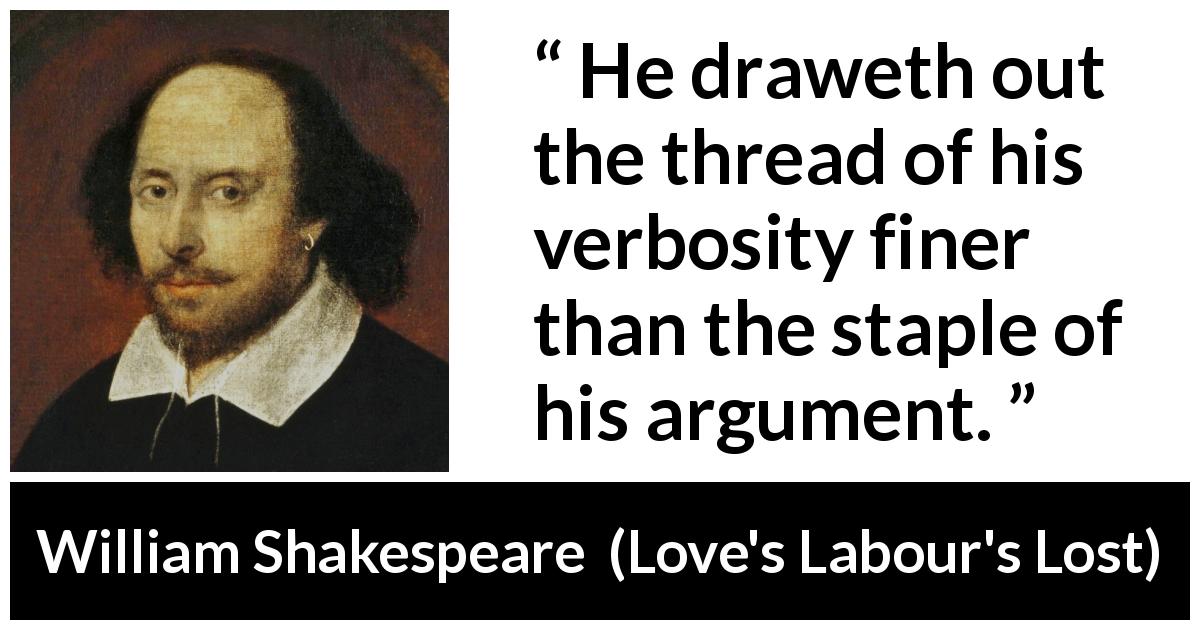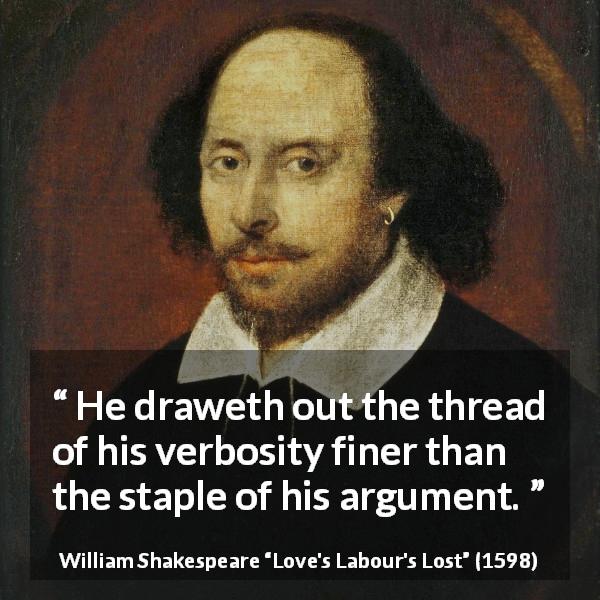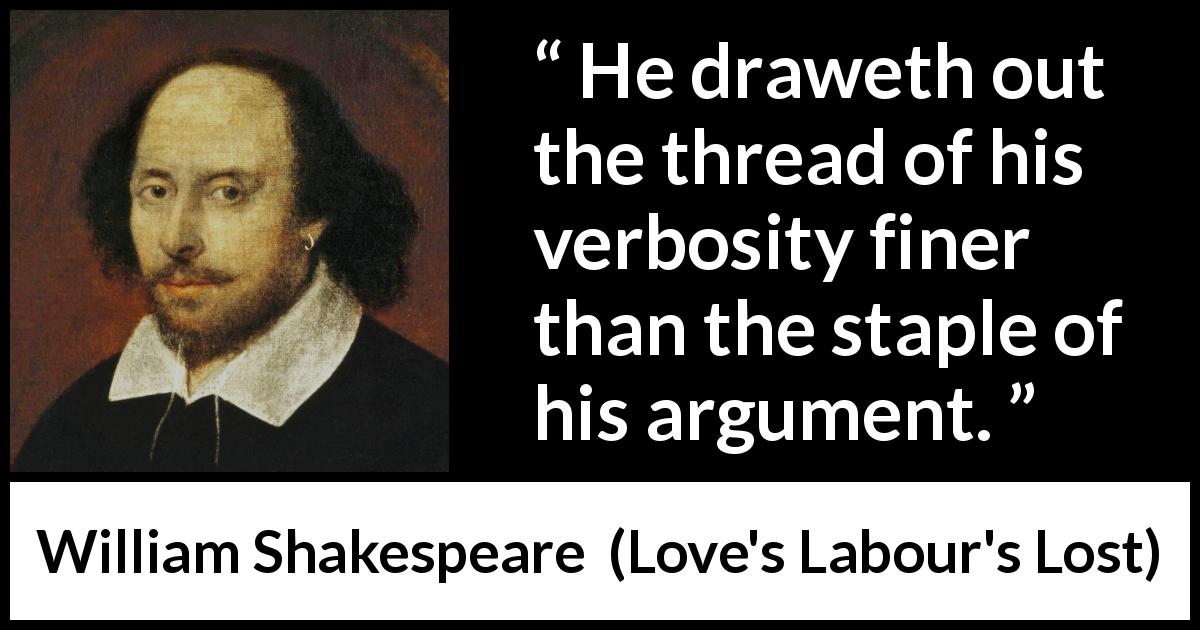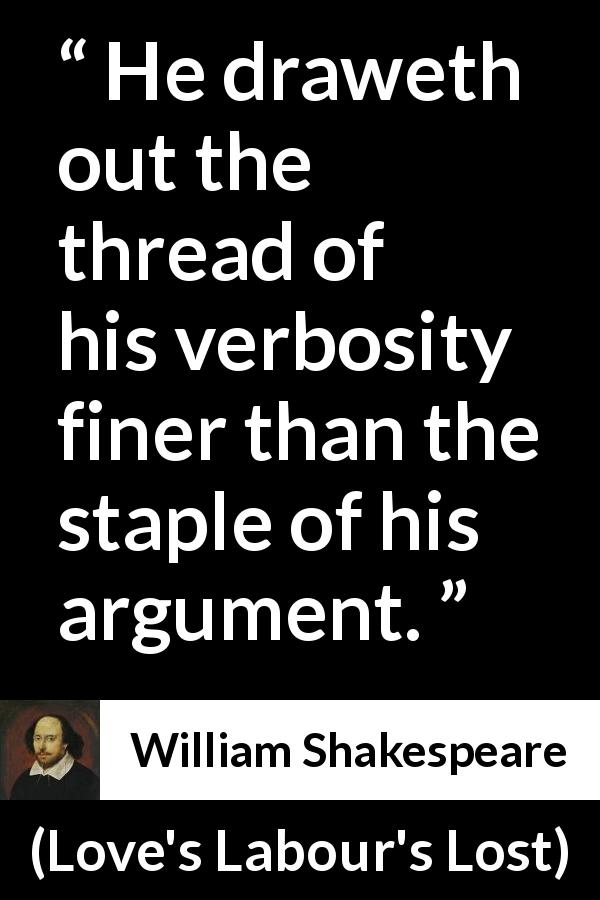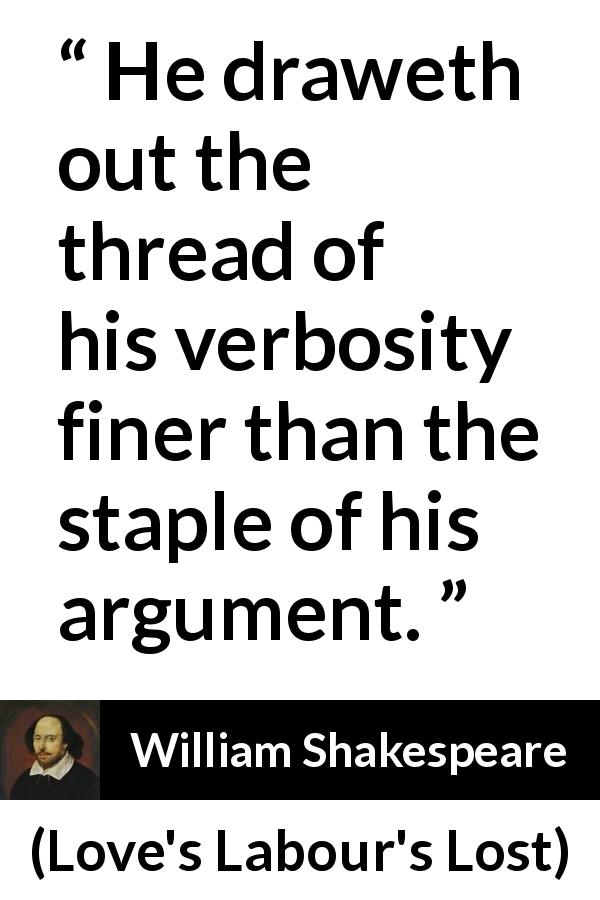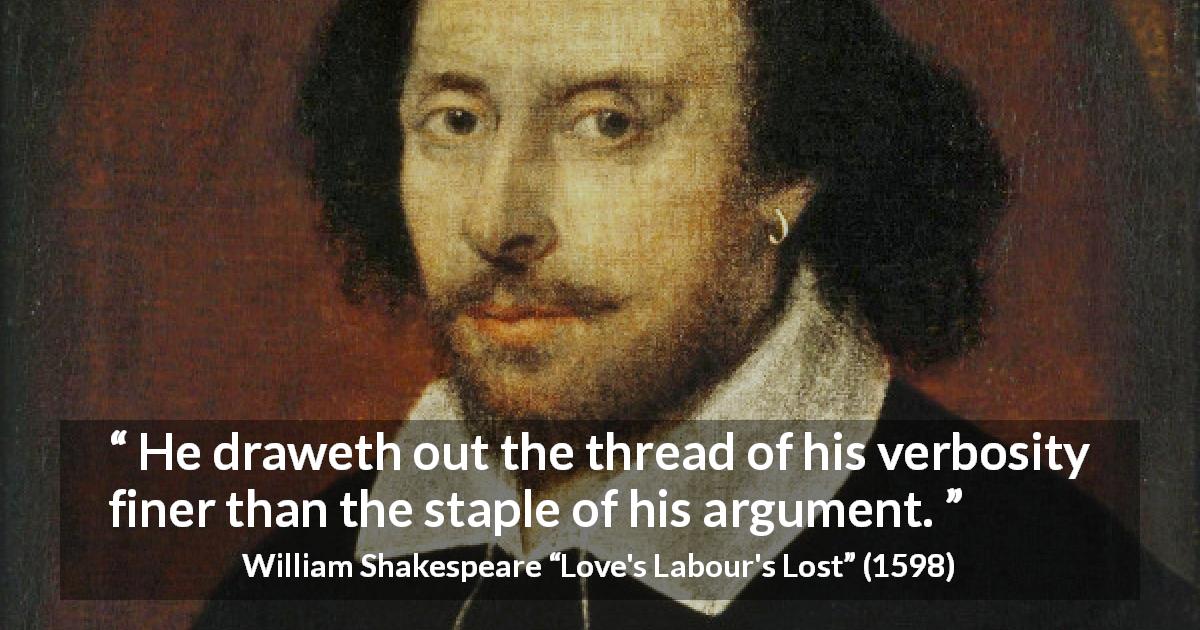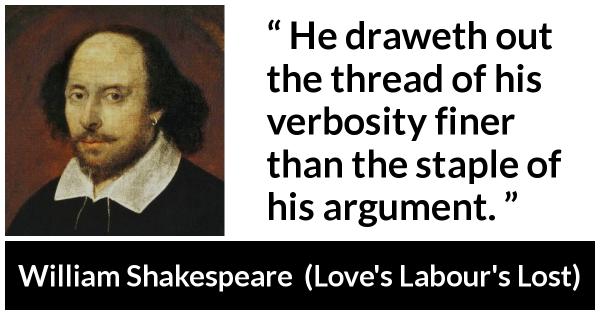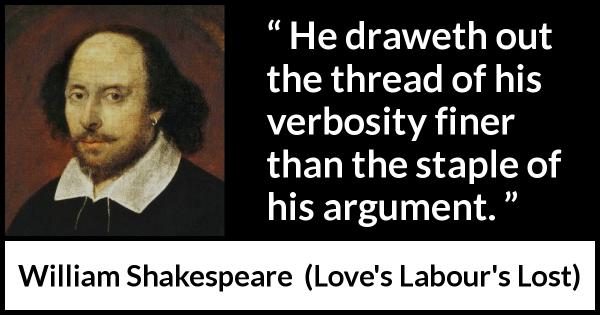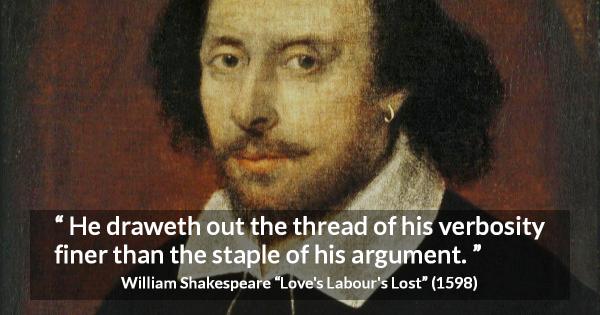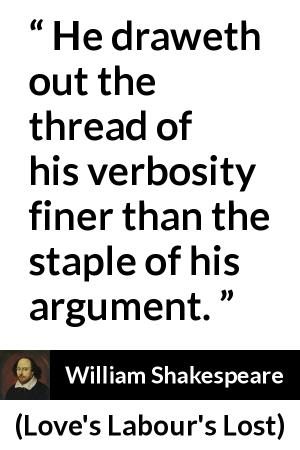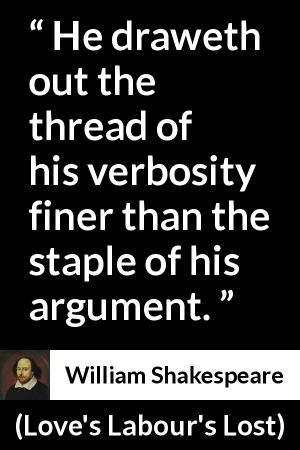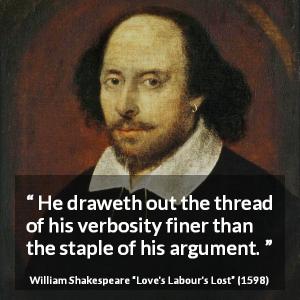“ He draweth out the thread of his verbosity finer than the staple of his argument. ”
William Shakespeare, Love's Labour's Lost (1598). copy citation
| Author | William Shakespeare |
|---|---|
| Source | Love's Labour's Lost |
| Topic | argument rhetoric verbosity |
| Date | 1598 |
| Language | English |
| Reference | |
| Note | Written between 1595 and 1596 |
| Weblink | http://www.gutenberg.org/cache/epub/1109/pg1109-images.html |
Context
“thrasonical. He is too picked, too spruce, too affected, too
odd, as it were, too peregrinate, as I may call it. NATHANIEL. A most singular and choice epithet.
[Draws out his table-book] HOLOFERNES. He draweth out the thread of his verbosity finer
than the staple of his argument. I abhor such fanatical
phantasimes, such insociable and point-devise companions; such rackers of orthography, as to speak 'dout' fine, when he should say 'doubt'; 'det' when he should pronounce 'debt'- d, e, b, t, not d, e,” source
odd, as it were, too peregrinate, as I may call it. NATHANIEL. A most singular and choice epithet.
[Draws out his table-book] HOLOFERNES. He draweth out the thread of his verbosity finer
than the staple of his argument. I abhor such fanatical
phantasimes, such insociable and point-devise companions; such rackers of orthography, as to speak 'dout' fine, when he should say 'doubt'; 'det' when he should pronounce 'debt'- d, e, b, t, not d, e,” source
